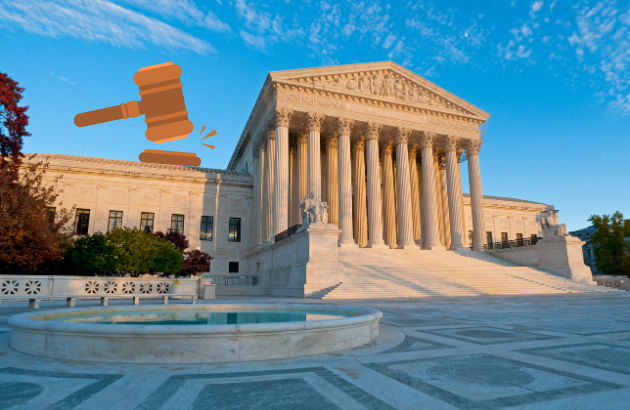Blog
US Supreme Court: Jurisdiction and 2025-2026 Term
The U.S. Supreme Court has taken up a series of cases to be decided during its next term, which begins in October 2025. Keep reading for a breakdown of the Supreme Court's jurisdiction and upcoming term.
Article III, Section 1 of the U.S. Constitution establishes the Supreme Court of the United States. Section 2 grants the Justices power over both original and appellate jurisdiction.
Power over original jurisdiction allows the court to hear “all cases affecting Ambassadors, other public Ministers and Consuls, and those in which a State shall be a party.” (U.S. Const. art. III, § 2). Therefore, original jurisdiction cases are limited to those involving disputes among ambassadors or between states, such as the 2021 case of Mississippi v. Tennessee.
Granting appellate jurisdiction means that the Supreme Court has the power to review and revise a lower court’s decision (Black's Law Dictionary, 12th ed. 2024). Most of the cases heard by the Supreme Court are appeals from lower courts, primarily done through Writs of Certiorari, which order a lower court to deliver its case record for a higher court to review.
The Supreme Court has its own set of rules, which help determine which cases appealed from lower courts are heard during a given term. Per these rules, four of the nine sitting Justices must vote to accept a case. As of September 2025, the Supreme Court has agreed to hear 33 cases during the 2025-2026 term (Ballotpedia 2025).
By law, the Court’s term begins on the first Monday in October and ends the Sunday prior to the first Monday in October of the following year (28 U.S.C. § 2). Typically, the Court takes a recess from late June until early October. The full Supreme Court calendar for 2025-2026 can be found here.
In preparation for the upcoming term, Thomson Reuters has published a list of notable cases to be heard during the 2025-2026 session; check it out via this link.




